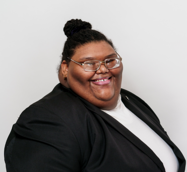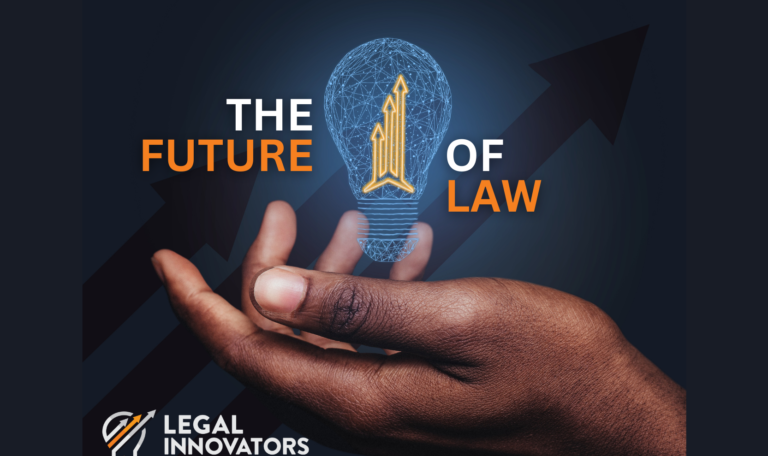As an African American woman, and first-generation college student, my initial goal in law school was to keep my head above water. Commonly, first-generation college students lack the cultural, social, and financial capital that allows them to navigate higher education spaces smoothly.[1] Moreover, they are also overwhelmingly minorities.[2] We often do not have the same level of resources and support as some majority counterparts, who benefit from previous family guidance. Unfortunately, I had little direction on how to navigate higher education spaces which made it difficult to focus both on my grades, as well as my career aspirations after graduation. Considering these pressures, I felt underprepared.
According to Above the Law, grades are the biggest indicator of the kind of job a student will land after law school. As a 1L, there is immense pressure to succeed. That pressure is magnified for students like me who were undecided on the type of law career they wanted to pursue. When I learned prospective summer employers focused on first semester grades, my stress level skyrocketed. Although I would graduate in the top half of my class, my first semester grades were the lowest of my law school career as I adjusted to a foreign environment.
When hiring for entry-level positions, large firms mostly choose individuals who participated in their summer associate program. In 2017, more than 95 percent of 2015 summer associates received offers for junior associate jobs. If a 3L decides to explore the possibility of going into Big Law later in their law school career, it is too late to begin the process. Very few large firms hire their junior associates from third-year students during on campus interviews (OCI). NALP reports that in 2015 less than one-third of firms recruited 3L’s that had not previously worked for them.[1]
The traditional law firm hiring process gives little attention to students as individuals, or the hardships and pressures in their personal lives. Because of this, applicants with incredible potential to become skilled legal talent are often overlooked. Diversity suffers as a result. Based on my experience, here are some considerations to keep in mind to provide more opportunities to diverse junior lawyers — like me.
True diversity is a culture, not a quota
According to the American Bar Association, diversity is a “term used to describe the set of policies, practices, and programs that change the rhetoric of inclusion into empirically measurable change.”
When diversity is just checking a box, the client ultimately suffers because they are not receiving the most robust advice available. True diversity in the workplace means more than having a quota for minorities. It means creating a comfortable space for people with different backgrounds, perspectives, opinions, and ideas to feel safe in expressing those differences. When people are comfortable, they lean into their differences and use their varied experiences to create a full-bodied representation. Clients benefit because they receive legal advice that examines the issue from all angles, and issues that might have been missed are caught. For example, during a summer job, there was an occasion when I had to explain that the decision to use a new online-based process for collecting important information could adversely impact people of color because they disproportionately lack access to the internet. This was something that was obvious to me because there are members of my family who have never had access to a computer but that did not immediately jump out for others because this was not their experience.
In a crowded market, diversity can offer firms a competitive edge and help them stay relevant. With a growth of minorities and women as General Counsel at large companies, the client base itself is becoming more diverse. In January 2019, 170 General Counsels at some major companies, including Etsy, Lyft, and VOX Media, penned an open letter to Big Law firms telling them to address their diversity deficiencies, or they would lose their business. The letter indicated disappointment that classes of new partners were “largely male and largely white.”
In fact, in 2017, people of color represented only 9 percent of the partner population, with women of color amounting to just 3 percent (even though women of color represent a larger percentage of the associate pool than minority men).[1] The letter also asserted that General Counsels will prioritize employing firms that “commit to diversity and inclusion.”
Challenge tradition and provide efficiency, quality, and diversity
I joined Legal Innovators because they provide an alternative route into Big Law. They do this without sacrificing quality or diversity.
During the multistage interview process with Legal Innovators, I was impressed by the steps they took to get to know the whole candidate. Grades are a factor, but not the deciding one. The process, which takes place over several months takes into account a candidate’s passion, personality, dedication, and work ethic. They want to know what values these individuals can add to the office culture, determine their willingness to learn, and potential for growth. In other interviews during my job search, I had felt judged, as if the odds were against me before I even opened my mouth to speak. During my interviews with Legal Innovators, I felt immediately comfortable and at ease.
Legal Innovators recognizes that not all diamonds are perfectly polished in the beginning. Some, like me, take time and guidance to grow into our full potential. Once hired, Legal Innovators also provides ongoing mentoring and training to the new law clerks to ensure that we are prepared for the onslaught of work we will receive when we begin working in firms.
Legal Innovators is a safe space where different experiences and perspectives are treated as assets. The company is breaking the mold in what it means to be a junior associate in Big Law, and helping more people break barriers in their career. As someone who did not forge a traditional path into Big Law, Legal Innovators has provided an avenue for me to begin my career. I know firsthand that when your experiences and foundations do not run with tradition, it is easy to feel alienated. It is easy to feel unwelcome in the sphere. My goal as a lawyer has always been to provide my client with the best possible representation. That includes gaining all the insight, knowledge, skills, and connections possible. With Legal Innovators nontraditional training program, I have the opportunity to do just that.

Tanisha Mitchell is an Associate with Legal Innovators.
She graduated from Howard University Law School and has a B.A. in Pre-Law, Philosophy, and Psychology from Frostberg State University. During law school, she was a Fellow with the NAACP, interned at Senator Kamala Harris’ D.C. office. She can be reached at [email protected]
[1] Minority Corporate Counsel Association, Vault/MCCA Law Firm Diversity Survey 2018 Report, Mcca.org, https://www.mcca.com/wp-content/uploads/2018/11/2018-Vault-MCCA-Law-Firm-Diversity-Survey-Report.pdf (last visited Feb. 7, 2020).
[2] Id. at 932.
[3] National Association for Law Placement, Perspectives on 2015 Law Student Recruiting, Nalp.org, https://www.nalp.org/uploads/Perspectiveson2015RecruitingFinal.pdf (last visited Feb. 6, 2020).
[4] Minority Corporate Counsel Association, Vault/MCCA Law Firm Diversity Survey 2018 Report, Mcca.org, https://www.mcca.com/wp-content/uploads/2018/11/2018-Vault-MCCA-Law-Firm-Diversity-Survey-Report.pdf (last visited Feb. 7, 2020).




